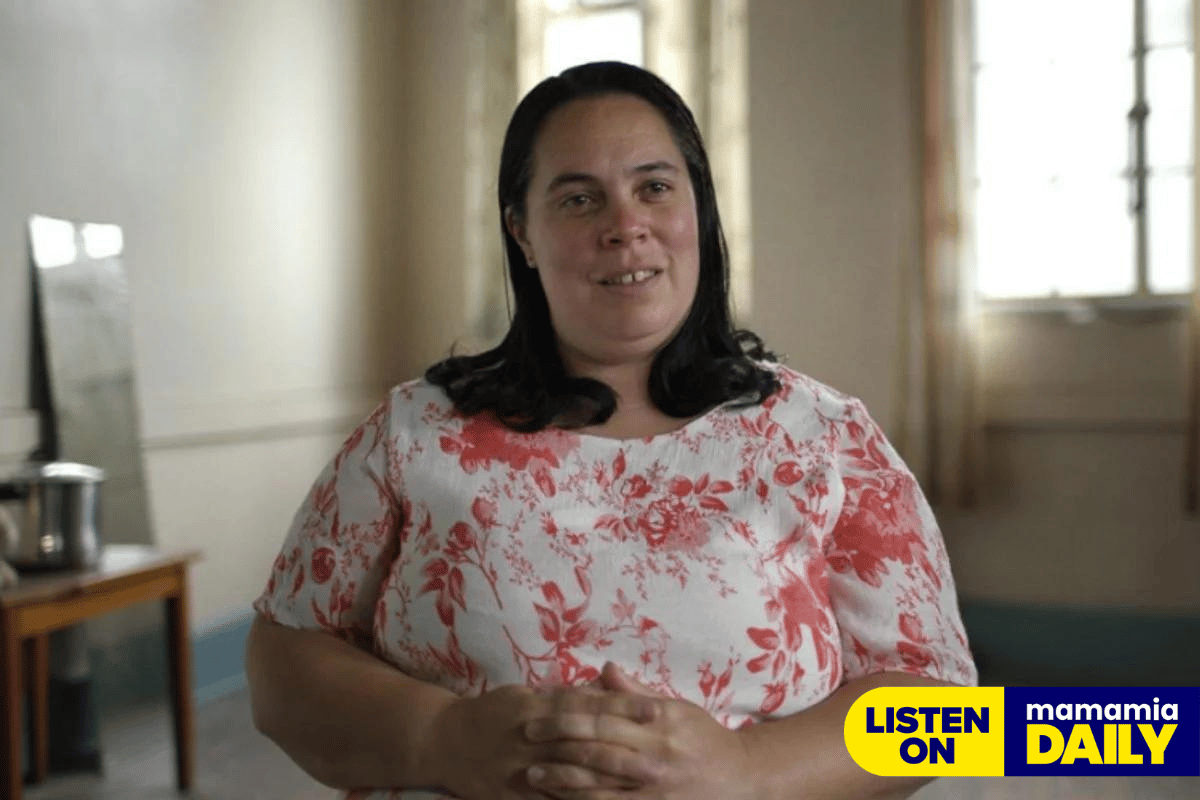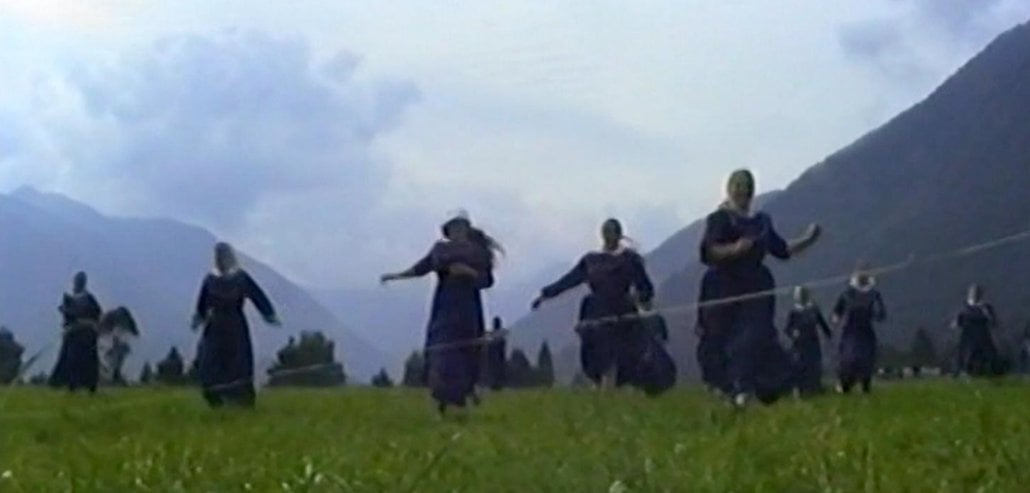
Listen to this story being read by Adrienne Tam, here.
Precisely three years ago, in October 2019, Virginia Courage and her husband David made a very important - and a very painful - decision. They, and their 10 children, were leaving Gloriavale, the secretive religious community they had not only lived in all their lives, but had given their lives to.
Leaving the home they had always known was terrifying.
Staying was even more so.
"It was a very, very difficult day. You know that you're taking your kids away from everything that's been familiar. You’re ending friendships. And you can't even really tell them why. You can tell them general comments, but you really can't explain 20 years of thinking and analysing and saying, 'Something's not right here'," Virginia, 43, told Mamamia.
"From the spiritual aspect as well, you're told that if you go, you're going to hell. That's a huge weight to carry... So that’s always in your mind, just this little niggle, like, what if that's true? What if now that I'm stepping out of Gloriavale, what if I am actually going to lose my Christian faith, what if I’m no longer acceptable to god? What if I am taking my 10 children all to hell with me because of the decision I've made, because I can't live in this place anymore?"
In the end, her fear for her children's safety outweighed everything else. Gloriavale had a history of covering up sexual abuse and predatory behaviour towards young girls and boys - something Virginia knew all too well. She herself had been sexually abused at 13 by a married member of the community.
